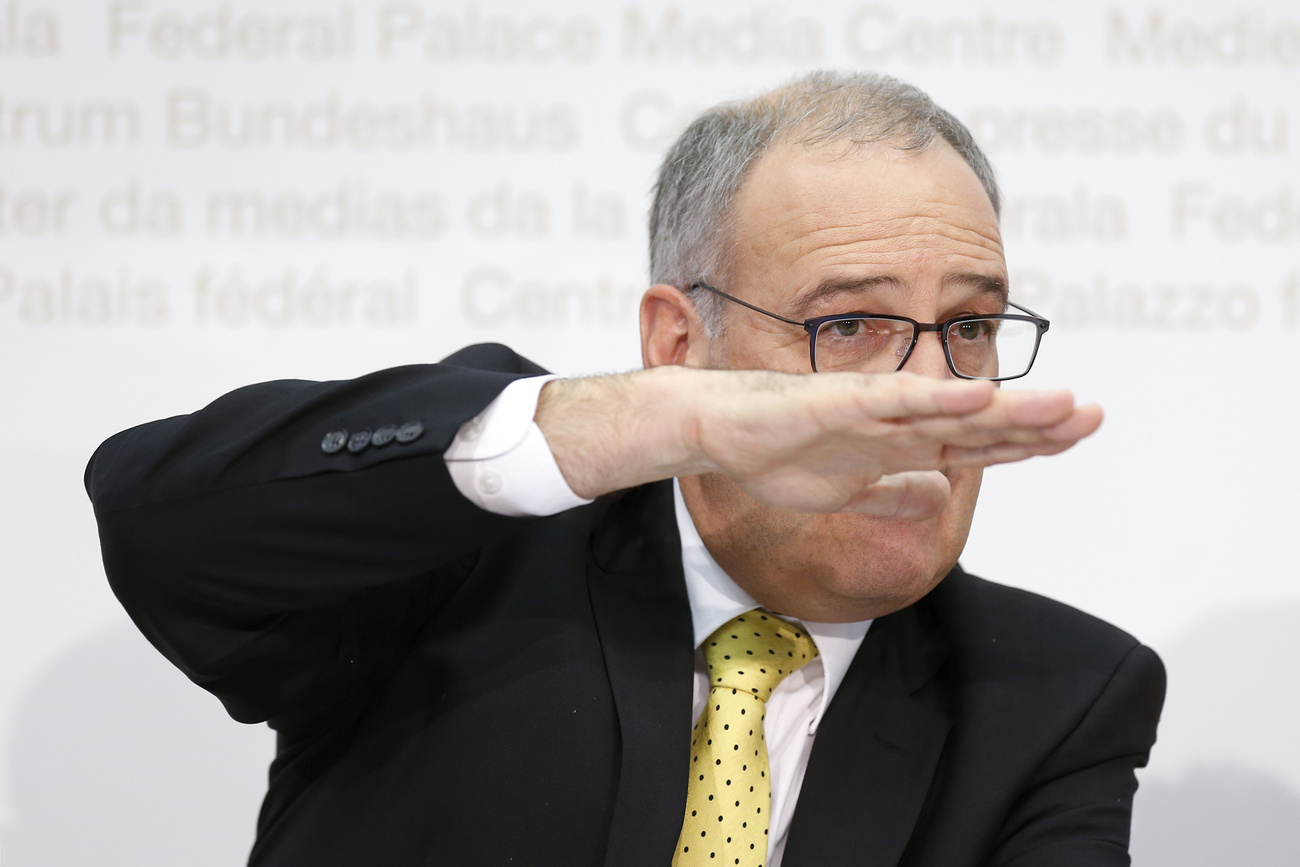
Inflation: Guy Parmelin says unions must negotiate a pay raise

Swiss Economics Minister Guy Parmelin says it is the responsibility of unions to negotiate a salary raise to cope with rising food prices due to the war in Ukraine. He also expects energy prices to rise further due to new sanctions on Russia.
“The Federal Council (executive body) sees the problem,” Parmelin said in an interview published by the SonntagsBlick newspaper. “Now the social partners have to negotiate wage increases. The state should not anticipate these talks between employers and trade unions. However, if necessary, the federal government can make corrections, for example, to supplementary benefits or other benefits for lower income households.”
The Swiss Federation of Trade Unions, quoted in the same newspaper, says that low- and medium-wage earners already feel the crunch. Since 2016, the lowest paid 10% of employees have lost CHF60 ($62) per month, the umbrella organisation calculated. For middle-income earners, the shortfall was CHF30 per month. Factoring the increase in health insurance premiums, an average family loses up to CHF3,300 of purchasing power annually.
Moscow’s invasion of Ukraine and international economic sanctions on Russia have disrupted supplies of fertiliser, wheat and other commodities from both countries. Russia and Ukraine produce 30% of the world’s wheat and Russia is a major producer of fertilizer needed for food production. Parmelin notes the sharp rise in prices is hitting other countries harder, especially in North Africa and the Middle East. Food crises could destabilise these regions sparking conflict and refugee movements, he warns.
Swiss supplies secure
Switzerland’s food security has not been comprised by the conflict in Ukraine. “We import 45% of our food,” the minister said. “We produce enough milk, only a quarter of what we use for sunflower oil, and around 80% for meat. We don’t buy a lot from Russia or the Ukraine; Switzerland’s food supply is currently secure. But indirectly we are certainly affected. The war drives up prices on the grain market in particular.”
The minister says energy prices are likely to rise again on account of the latest sanctions imposed on Russia. After lengthy negotiations, the European Union (EU) on Friday agreed to a partial embargo on crude oil imports that will take full effect by the end of 2022. That covers 90% of the bloc’s imports from Russia. The government of Switzerland, which is not a member of the EU but has followed its lead when it comes to Russia sanctions, can do little to influence energy prices, the minister noted.
“We can try to diversify the energy supply, but nobody in Europe has a ready-made solution at the moment,” said Parmelin. “What we can do is to use energy sparingly. In this area, Switzerland is already well on its way. Our industry is already very efficient.”
The government might also need to consider support measures for specific industries if energy prices continue to rise. But they are not needed at this stage. “We are not there yet,” says Parmelin. “Such measures must be targeted.”

In compliance with the JTI standards
More: SWI swissinfo.ch certified by the Journalism Trust Initiative




























You can find an overview of ongoing debates with our journalists here . Please join us!
If you want to start a conversation about a topic raised in this article or want to report factual errors, email us at english@swissinfo.ch.